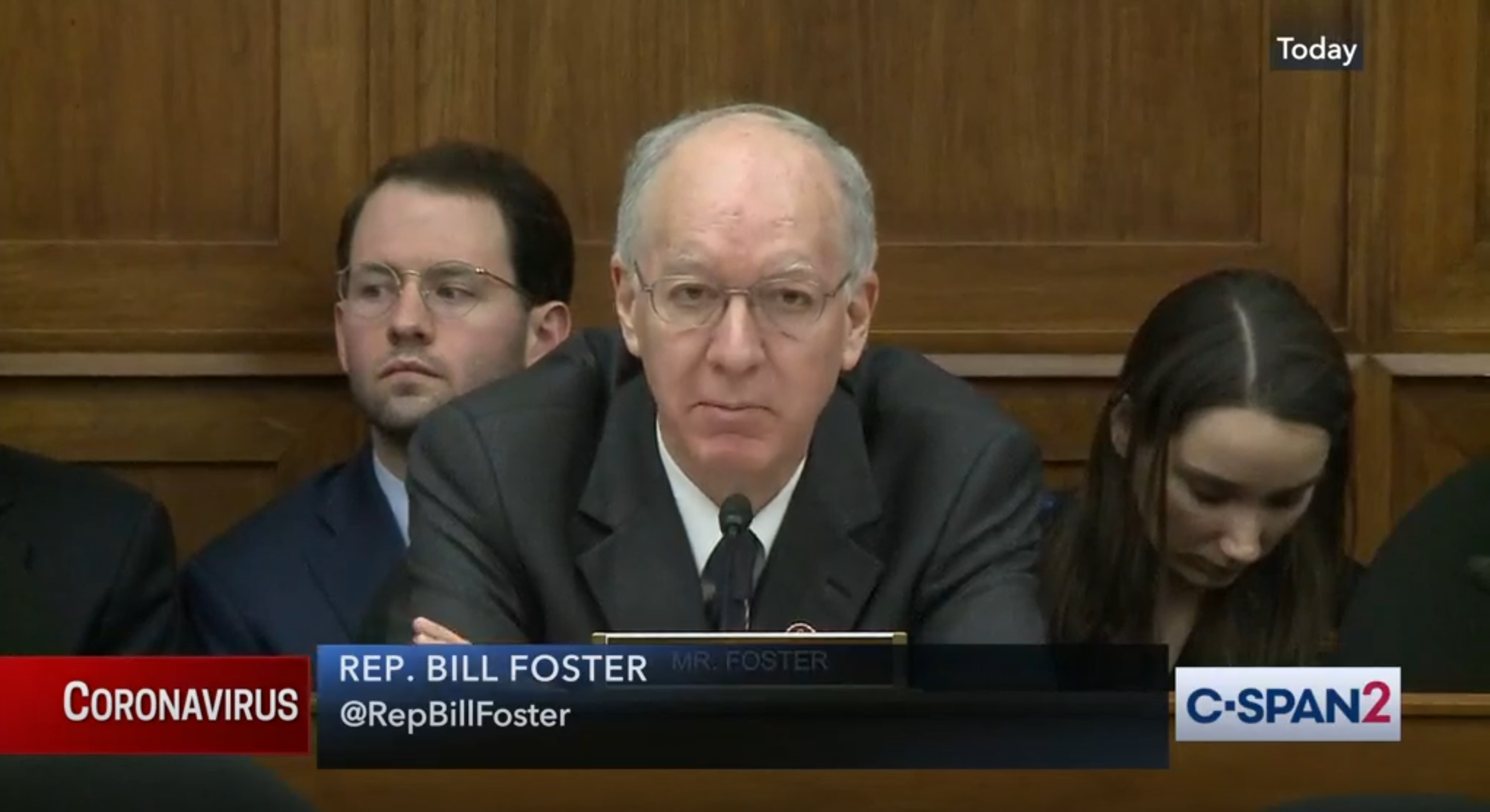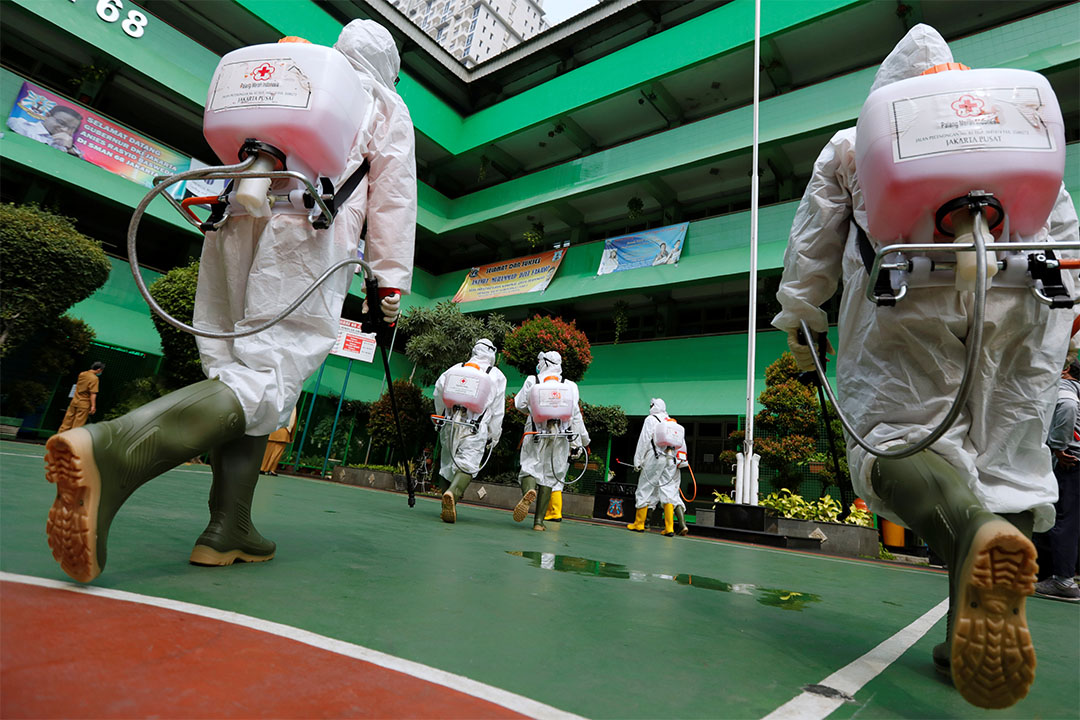
Political support is building for regulators in the United States to embrace the controversial strategy of intentionally infecting volunteers with the virus that causes COVID-19 in order to test experimental vaccines. Such human challenge trials could greatly accelerate the development of an effective vaccine, 35 members of the House of Representatives argue in a letter sent yesterday to the heads of the U.S. Food and Drug Administration (FDA) and its parent agency, the Department of Health and Human Services (HHS).
“[A] more risk-tolerant development process is likely appropriate in the case of a COVID-19 vaccine,” write the group of lawmakers, which includes both Democrats and Republicans. “The enormous human cost of the COVID-19 epidemic alters the optimization of the risk/benefit analysis.”
The lawmakers also back the idea of parallel, simultaneous testing of different doses of a vaccine—as opposed to the traditional practice of sequential testing that, for safety reasons, begins by giving trial participants the lowest dose first and then ratchets up. Parallel testing could more quickly move a candidate vaccine from small studies that look only at safety and immune responses to larger ones that actually assess efficacy, the letter notes.
The letter was spearheaded by Representatives Bill Foster (D–IL), a physicist, and Donna Shalala (D–FL), former HHS secretary. “This is designed as much as anything to give the FDA political cover” needed to approve challenge trials, Foster tells ScienceInsider. “The FDA must be worried that they’re going to have these trials, something bad is going to happen, there’ll be a bad story in the newspaper about a sympathetic person who got unlucky in one of these trials and didn’t survive. And then Congress is going to go and say: ‘Let’s have a hearing on this,’ and start dragging them in. … One of my goals in here was to let them know that Congress understands that there are no risk-free paths here.”
According to the latest tally by the World Health Organization (WHO), 76 vaccine candidates are already under development around the world. Five have moved into clinical trials. But public health officials have cautioned that, from start to finish, it takes at least 1 year—and more likely 18 months—to prove whether a candidate is safe and effective. And that’s if no problems surface.
Stanley Plotkin, a leading vaccine researcher at the University of Pennsylvania who has advocated human challenge studies for COVID-19 vaccines, welcomes the congressional show of support. “It is urgent that authorities like FDA and WHO give challenge studies immediate consideration, as they could speed up the use of vaccines even before formal licensure that would depend on additional data,” Plotkin says.
In theory, challenge trials could enroll volunteers who are at low risk of harm from the virus that causes COVID-19—dubbed SARS-CoV-2—such as young adults who rarely develop serious symptoms after becoming infected naturally. “Our situation in this pandemic is analogous to war, in which there is a long tradition of volunteers risking their health and lives on dangerous missions for which they understand the risks and are willing to do so in order to help save the lives of others,” the letter states. “Every week of delay in the deployment of a vaccine to the seven billion humans on Earth will cost thousands of lives.”
Critics of human challenge studies note that many unknowns remain about SARS-CoV-2. Conducting proper studies would require time to grow the viruses to be used in the challenges under sterile conditions and to determine the optimal challenge dose. What’s more, Sinovac, a Chinese company that began clinical trials of its COVID-19 vaccine last week, says it may complete the first two phases of testing by the end of June and seek regulatory approval for emergency use of their candidate in high-risk people like health care workers, which is another way to shortcut answers to whether a product is safe and effective.
Foster counters that testing a vaccine in health care workers who are needed in a hot spot also has risks, as it might take them out of work for a time. He hopes the letter “just makes the FDA a little less scared,” stressing that “it’s pretty clear that the only way we’re really finally going to get out of this [pandemic] is when we have an effective vaccine.”
COVID-19 Update: The connection between local and global issues–the Pulitzer Center's long standing mantra–has, sadly, never been more evident. We are uniquely positioned to serve the journalists, news media organizations, schools, and universities we partner with by continuing to advance our core mission: enabling great journalism and education about underreported and systemic issues that resonate now–and continue to have relevance in times ahead. We believe that this is a moment for decisive action. Learn more about the steps we are taking.








